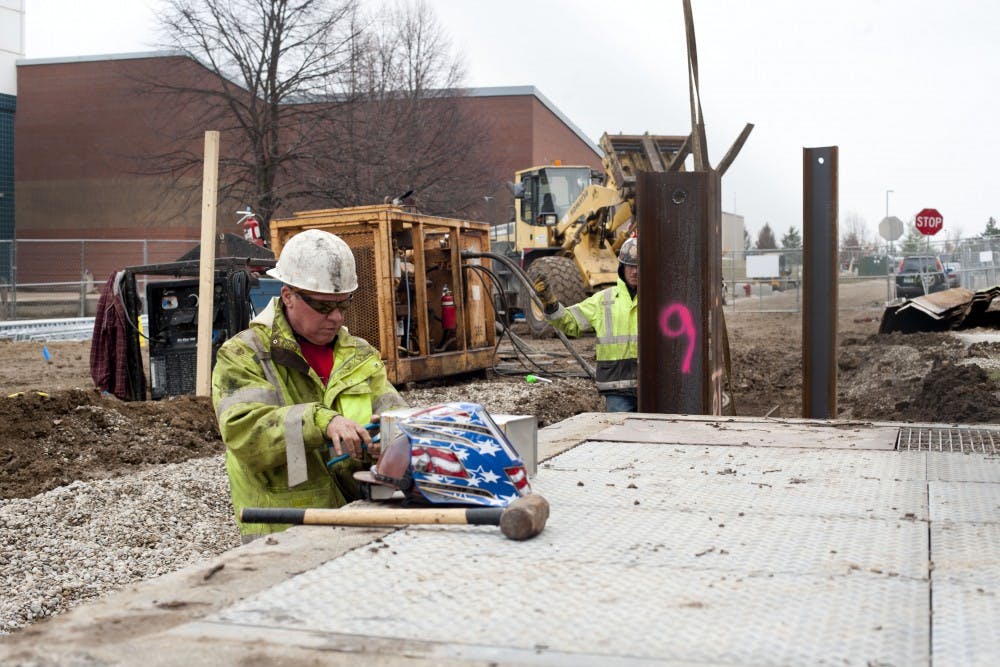Facilities spends $160,000 to repair water line leak

To repair a leak in an underground chilled water line for air conditioning, workers from facilities management dug 15 feet into the ground while protecting a circuit that feeds the nearby powerhouse.
The $160,000 project took place Monday, Dec. 15, near the northwest corner of Woldt Hall. Workers contracted from Miller Davis, a Kalamazoo-based contractor, sheet piling to protect the circuit, while allowing them to remove a length of four-inch piping.

The piping was connected to a 24-inch pipe. It needed to be fixed due to nearby work being done at the Biosciences Building. Workers removed the damaged piping, and added a clamp to close off the leak.
Vice President of Facilities Management Steve Lawrence said the leak was noticed about four to six weeks before the work began.
“We wanted to do the work before students return from break, so as not to disrupt them,” Lawrence said. “It’s kind of loud. It’s not very normal where we have to use sheet piling to excavate. We do it, but it isn’t very often.”
Sheeting piling is an excavation technique, which uses several interlocking steel sheet sections to retain dirt during construction projects. Workers installed them to protect themselves from electricity from the circuit, and to ensure the circuit wasn’t damaged.
“It’s quite a high-budget project,” Lawrence said. “Sheet piling is expensive. They’re used a lot in confined spaces. It’s a very expensive repair.”

Bob Lopez, owner representative from Miller Davis, was at the construction site where workers welded steel framework to support the sheet piling before setting the sheets in place.
“We only do this when we have to,” Lopez said. “We’ve got some sensitive gear here, so it’s a little tricky. Basically, the sheet piling holds the dirt. These are here so we can do our work safely. Hopefully we will never have to go down there again.”



